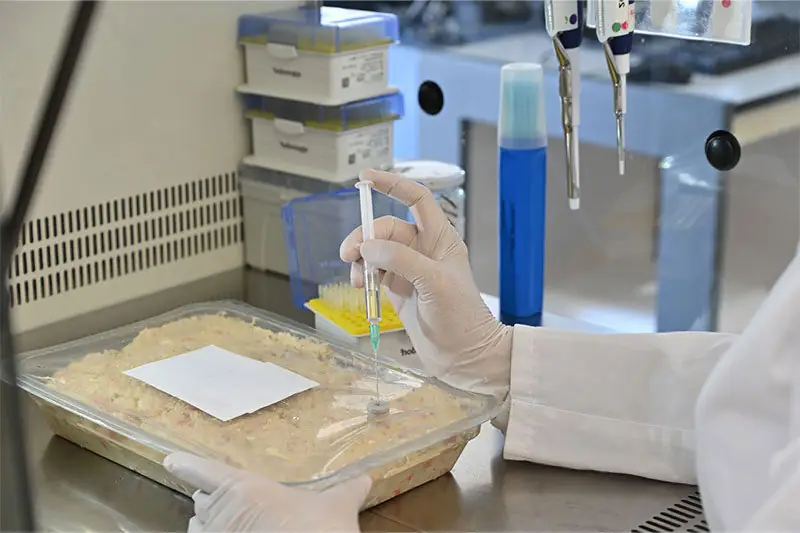Microbial Contamination Testing in Herbal Cosmetic Products
The growing demand for natural and herbal cosmetic products has led to an increased focus on ensuring their safety. Microbial contamination testing is a critical step in this process, as it helps ensure that these products do not contain harmful microorganisms which can compromise the health of consumers.
Herbal cosmetics are often perceived as safer due to their natural ingredients; however, they still require rigorous quality control measures. The presence of microorganisms such as bacteria, fungi, and yeasts in cosmetic products can cause spoilage, irritation, or even infections if not properly managed. Therefore, microbial contamination testing is essential for maintaining the integrity and reputation of these products.
Microbial contamination testing typically involves collecting samples from various stages of production, including raw materials, finished goods, and packaging. These samples are then analyzed using culture-based methods and advanced molecular techniques like PCR to identify potential contaminants. The key microorganisms targeted in this type of testing include Listeria monocytogenes, Staphylococcus aureus, Candida albicans, among others.
The importance of microbial contamination testing extends beyond just meeting regulatory requirements. It also plays a crucial role in protecting the brand’s reputation and maintaining consumer trust. Companies that invest in comprehensive quality assurance programs are better positioned to respond quickly to any issues that arise, thereby minimizing risks associated with product recalls or legal actions.
At Eurolab, our expertise lies in providing precise and reliable microbial contamination testing services tailored specifically for herbal cosmetic products. Our team of scientists uses state-of-the-art equipment and follows international standards such as ISO 17254:2018 to ensure accurate results. By partnering with us, you can rest assured that your products meet the highest safety standards.
For more detailed information about our testing procedures or to discuss how we can help improve your product quality assurance processes, please contact our dedicated team today.
Scope and Methodology
The scope of microbial contamination testing in herbal cosmetic products encompasses several key aspects:
- Sample Collection: Samples are collected from different stages of production, including incoming raw materials, intermediate processes, final formulations, and finished goods.
- Culture-Based Methods: Traditional methods involve growing suspected contaminants on appropriate media to isolate and identify them.
- Molecular Techniques: Advanced PCR-based assays are used for rapid detection of specific pathogens or markers indicative of contamination.
The methodology employed by Eurolab adheres strictly to recognized international standards such as ISO 17254:2018 and ASTM E2396-16. This ensures consistency, accuracy, and reliability in our test results.
Industry Applications
- New Product Launches: Ensuring new herbal cosmetic formulations are free from microbial contaminants before market introduction.
- Quality Assurance: Regular monitoring of production processes to maintain consistent product quality and safety standards.
- Investigations: Investigating suspected instances of contamination within existing products or during recalls.
- R&D Support: Assisting researchers in developing new formulations by identifying potential microbial challenges early on.
Eurolab Advantages
Choosing Eurolab for your microbial contamination testing needs offers several advantages:
- Experienced Scientists: Our team comprises highly qualified professionals with extensive experience in microbiology and cosmetic science.
- State-of-the-Art Equipment: We utilize cutting-edge technology to ensure precise and accurate testing results.
- Compliance Assurance: All our tests follow the latest international standards, guaranteeing compliance with regulatory requirements.
- Rapid Turnaround Times: Efficient processing times allow you to receive timely feedback on your product quality assurance efforts.





